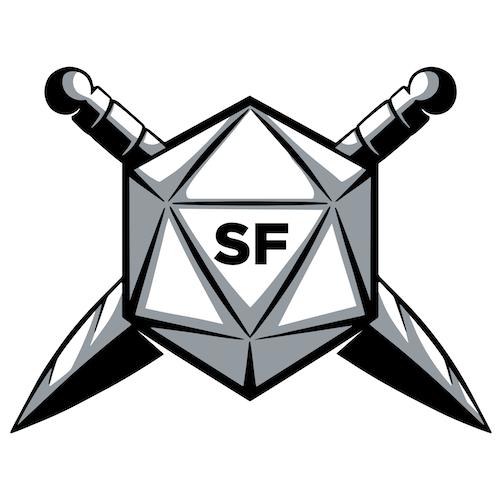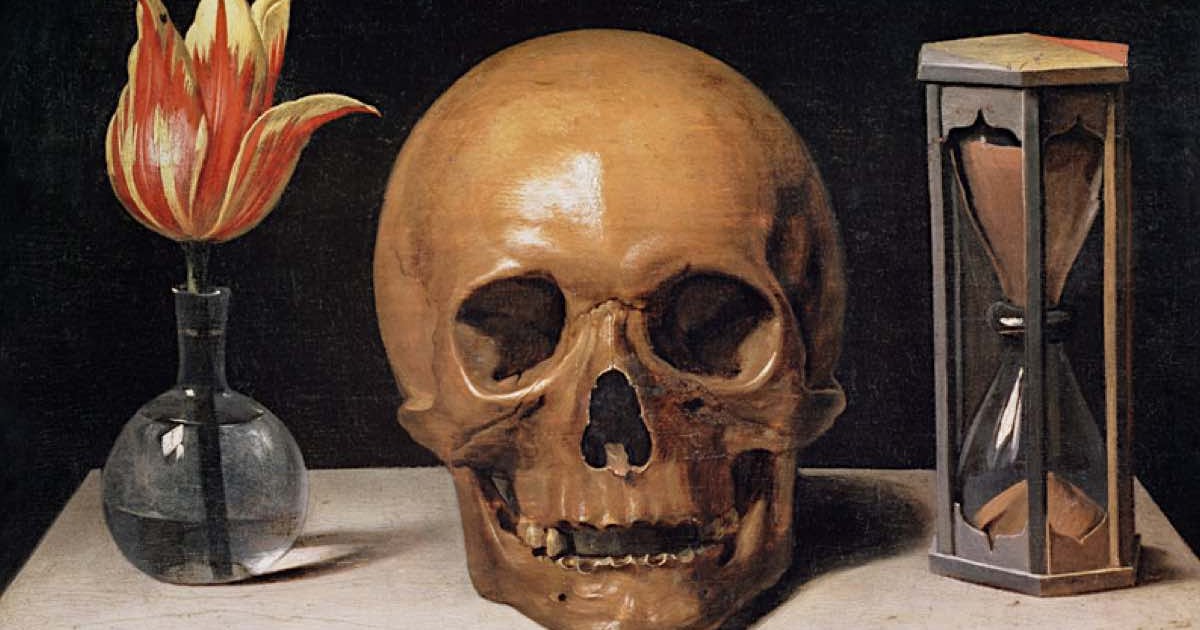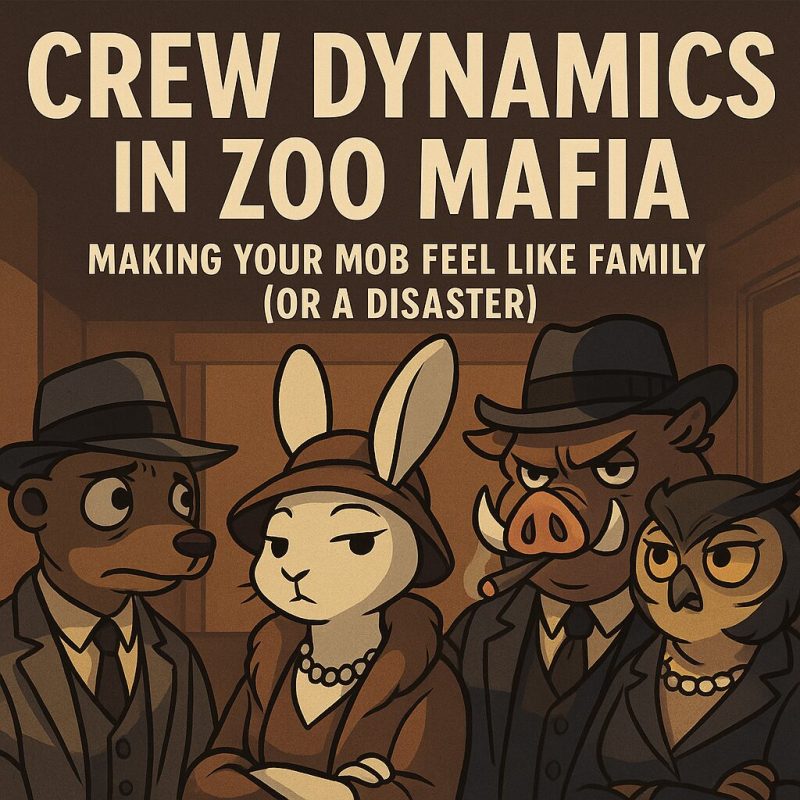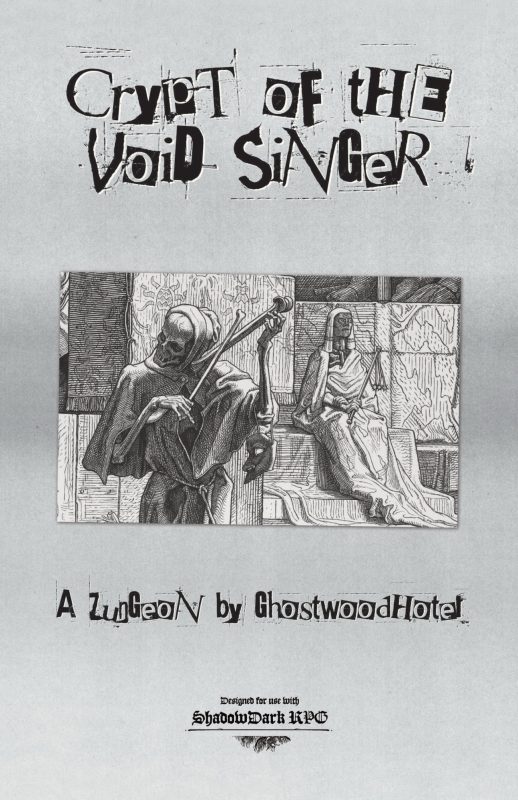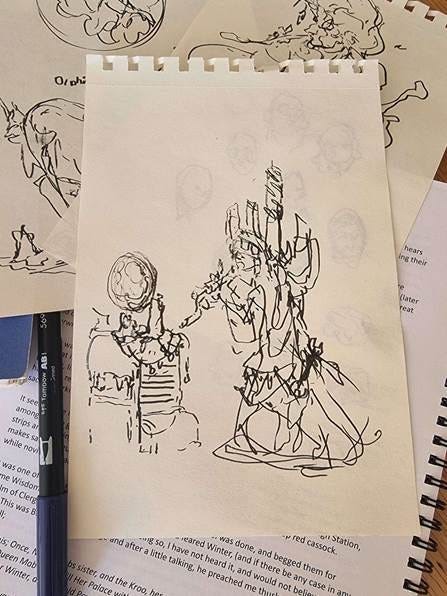SMOOSH JUICE
Use an Oracle Die
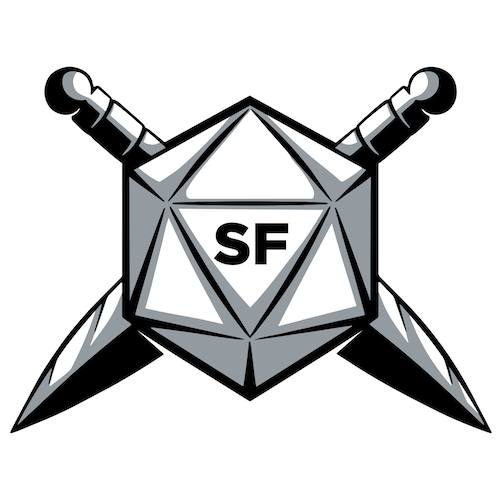
New to Sly Flourish? Start Here or subscribe to the newsletter.
by Mike on 21 April 2025
Ask questions. Roll a die. See what happens.
I first heard the concept of an oracle die from the excellent RPG Ironsworn but I expect it’s been around longer than that.
The concept is simple. Ask yourself a question, assign a probability to the potential answers, roll a die, and see what happens.
You can use pretty much any die. A d6, d10, or d20 works well. Choosing odd numbers or even numbers gives you a 50% probability on any die. Odds, this thing happens. Evens, something else happens. Roll and see what happens. Make sure to assign the results before you roll of course – even if it’s just in your head.
For more complicated situations, you can keep a table in your head. On a 1 or 2 on 1d6, a random encounter occurs.
An oracle die represents randomness in the world. Sometimes the weather is mild – sometimes it’s severe.
The Table-Less Oracle Die
We don’t need to have fancy tables for every roll. Instead, the oracle die can tell us the general severity, attitude, distance, or other factors just by how low or high the roll is. The lower your roll, the less severe the result. The higher your roll, the more severe the results. This severity works for weather, attitudes, behaviors, morale, and so on. We can also use it for distance. The lower the roll, the closer they are. The higher the roll, the further away something or someone is.
Other Oracle Examples
We can use our oracle die anytime we want to shift the direction of the game away from our own decisions and pass the decision over to the die. We can do so in the open too:
“On a 1 to 5, the guards check the room you’re in. On a 6 to 20, they go over to another room. Melissa, roll for us.”
Using an oracle die is a great way for the GM to become a player as well. We don’t know what will come up. We don’t know how the game will fork one way or another. The die tells us.
Here are ten other ways you might use an oracle die in your game:
- Determining how alert some guards might be.
- Determining the path a guard takes through a dungeon.
- Deciding if a badly injured adversary runs or stays.
- Determining if a monster acts wisely or chaotically in battle.
- Determining which character a monster might attack.
- Determining if a servant is in a room or not.
- Determining if a wandering monster is looking one way or another and which direction they are moving.
- Determining the type or harshness of weather (the higher the stronger).
- Determining the time of day.
- Deciding if the object vital to the quest is here or has been recently moved.
The Oracle Isn’t Character Focused
Typically the sorts of things we roll for using an oracle die aren’t character-based. It’s not a replacement for determining a difficulty class. The oracle die helps determine what’s happening in the world when chance plays a part. Characters don’t affect the oracle. But the oracle can definitely affect a character.
Keep your oracle die handy and use it to shift what’s going on in the world.
Ask questions. Roll a die. See what happens.
More Sly Flourish Stuff
Each week I record an episode of the Lazy RPG Talk Show (also available as a podcast) in which I talk about all things in tabletop RPGs.
Last Week’s Lazy RPG Talk Show Topics
Here are last week’s topics with time stamped links to the YouTube video.
- Jeremy Crawford Leaves Wizards of the Coast
- State of the OSR Podcast
- City of Arches Available in Hardcover in US and Canada
- SF Books for Friendly Local Game Shops through ACD
- Running the D&D 2025 Monster Manual Beholder
- How do RPGs Die?
- One-on-One Adventures in Dragon Delves
- Running One-on-One Games
Patreon Questions and Answers
Also on the Talk Show, I answer questions from Sly Flourish Patrons. Here are last week’s questions and answers.
- The Lazy GM Eight Steps on Index Cards
- Encounter Building for Three Characters
- Are 5e Systems Compatible and Which Would I Choose if I Had to Pick One?
Talk Show Links
Here are links to the sites I referenced during the talk show.
- Jeremy Crawford Leaves WOTC
- State of the OSR Gencon Panel Podcast
- City of Arches Hardcover available in US and CA
- Sly Flourish ACD Distribution for Local Game Shops
- One-on-One Adventures in Dragon Delves
- Tips for One-on-One play
Last week I also posted a couple of YouTube videos on D&D 2024 Dungeon Master’s Guide Tips versus the Top Tips of the Lazy Dungeon Master and Graymist – Dragon Empire Prep Session 20.
RPG Tips
Each week I think about what I learned in my last RPG session and write them up as RPG tips. Here are this week’s tips:
- Keep a handle on combat pacing. Don’t just run one hard fight after another.
- Have the characters walk in on the tail end of a battle between two other competing foes.
- Give characters an opportunity for a long rest or an equivalent magical restoration service like a healing fountain after several hard battles or a long dungeon crawl.
- Include multiple possible solutions to hard problems.
- Keep a general gauge of hit points to damage in mind. Roughly how many hit points do the characters have? For 5e it’s roughly 7 x level + 3.
- Include NPCs to roleplay with even in the darkest dungeons.
- Offer multiple paths and secret paths to navigate complex dungeons. Offer enough details so players can make informed choices.
Related Articles
- Advanced Random Encounter Tricks
- Lazy Monster Damage – Subtract 3, Add 1d6
- Understanding 5e’s Core Interaction
Share this article using this link: https://slyflourish.com/oracle_die.html
Subscribe to Sly Flourish
Subscribe to the weekly Sly Flourish newsletter and receive a free adventure generator PDF!
You successfully signed up for the Sly Flourish newsletter!
More from Sly Flourish
Sly Flourish’s Books
- City of Arches
- Return of the Lazy Dungeon Master
- Lazy DM’s Companion
- Lazy DM’s Workbook
- Forge of Foes
- Fantastic Lairs
- Ruins of the Grendleroot
- Fantastic Adventures
- Fantastic Locations
Have a question or want to contact me? Check out Sly Flourish’s Frequently Asked Questions.
This work is released under a Creative Commons Attribution-NonCommercial 4.0 International license. It allows reusers to distribute, remix, adapt, and build upon the material in any medium or format, for noncommercial purposes only by including the following statement in the new work:
This work includes material taken from SlyFlourish.com by Michael E. Shea available under a Creative Commons Attribution-NonCommercial 4.0 International license.
This site may use affiliate links to Amazon and DriveThruRPG. Thanks for your support!


